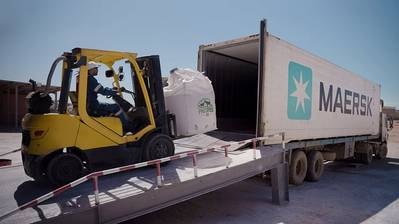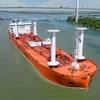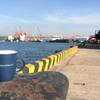Moroccan Fertilizer Company Partners with Maersk on Supply Chain Innovation
Morocco-based OCP Group, through its Specialty Products & Solutions (SPS) Strategic Business Unit, and Maersk, have signed a global Memorandum of Understanding (MoU) to jointly advance innovative, resilient, and sustainable supply chain solutions.
The agreement includes ocean and inland transportation, logistics services, digitalised supply chain management, educational programs and ambitious sustainability initiatives.
Strategic areas of collaboration:
Ocean and logistics services: Enhancing ocean freight capacity, expanding to new destinations, and establishing flexible global storage and distribution networks in Morocco and transit operations worldwide.
Supply chain innovation: digitalizing supply chain operations and implementing best-in-class practices, particularly in support of the specialty businesses international development.
Education & Research: Launching joint academic and training initiatives with Mohammed VI Polytechnic University (UM6P) to advance knowledge in logistics, supply chain and sustainability.
Sustainability: Sustainability will be addressed through joint efforts to decarbonise logistics operations, evaluate sustainable fuel solutions, and implement energy-efficient practices. Both companies reaffirm their shared commitment to achieving net zero emissions by 2040.
With over a century of expertise and a turnover of more than $9 billion in 2024, OCP is the world leader in plant nutrition solutions and phosphate-based fertilizers. Headquartered in Morocco and present on five continents, OCP Group has over 17,000 employees and works closely with more than 350 customers around the world.
OCP recently launched a green investment strategy, dedicated to increasing fertilizer production and investing in renewable energy. The strategy foresees an overall investment of approximately $13 billion over the period 2023-2027, which now enables the Group to use 100% non-conventional water since early 2025 (to ensure its complete autonomy, including a water desalination capacity of 560 million m3 per year by 2027), 100% clean energy by 2027 and achieve full carbon neutrality by 2040 (Scopes 1 and 2 by 2030, and Scope 3 by 2040), while increasing the production of green fertilizers.














